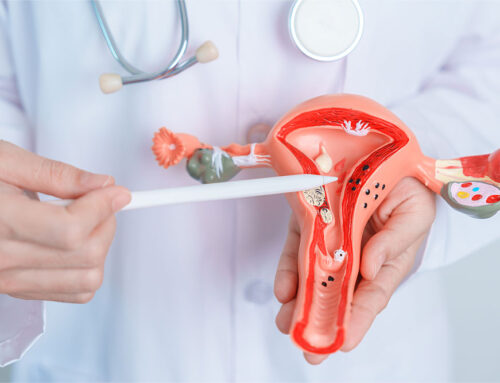Bleeding after menopause is common. However, it is not normal. If you are experiencing vaginal bleeding or spotting and you are in menopause, I urge you to see your gynecologist as soon as possible.
If you are not sure if you are in menopause, try to remember when was your last period? If it has been about 1 year since your last period, then you are probably in menopause. However, many women do experience bleeding on and off for few years during the transition into menopause and it could be very confusing. If you are not sure, please discuss it with your gynecologist and better assume that you are in menopause and get evaluated (better be safe than sorry!)
So why do we worry about postmenopausal bleeding? Because any bleeding after menopause could be an early sign of endometrial cancer (this is cancer of the inner lining of the uterus and it is the most common cancer of the female genital organs). Vaginal bleeding is the first sign of endometrial cancer in more than 90% of women.
However, this does not mean you have cancer (risk of cancer can vary from 1% to 14% depending on risk factors). This means you need to be evaluated to find out the cause of the bleeding AND to rule out cancer. So let’s go over what can cause bleeding after menopause.
Atrophy- that’s when the endometrial lining is very thinned out due to lack of estrogen and is the most common cause of bleeding after menopause.
“Hormonal” causes – that’s common in the early years after menopause and is probably related to your decreasing level of estrogen (without ovulation) leading to irregular bleeding.
Endometrial polyp -that’s an overgrowth from the inner lining of the uterus. It is typically benign but could rarely be precancerous or cancerous.
Hyperplasia- that’s thickening of the inner lining of the uterus and can contain abnormal cells and can be precancerous.
Cancer
Other causes could be due to hormonal treatment, blood thinners, etc.
Bleeding also could be from other places than from your uterus; for example it could be coming from the cervix, vagina, bladder or rectum (for example hemorrhoids).
You are probably freaking out now that you read the word cancer and precancerous multiple times. Let me tell you that the risk of cancer is still low. But since this is a possibility and since evaluation is easy, you need to see your Gynecologist as soon as possible to rule it out.
If you have a history of fibroids, please do not assume that this is the cause of your bleeding. Although fibroids are a common cause of heavy periods before menopause, it should not be causing your bleeding years after menopause. So if you have a history of fibroids and heavy periods in the past, you still need to be evaluated.







